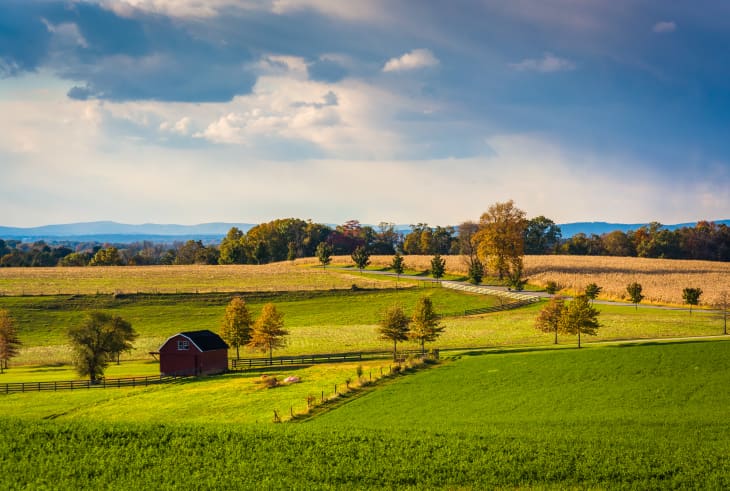I Thought I Wanted to Move to a Rural Mountain Town But I Was So, So Wrong

My husband and I had pretty much always planned to eventually move somewhere rural once we started our family. We wanted a lower cost of living and the opportunity to experience what we thought of as a throwback lifestyle, something we thought that we’d find in a town where everyone knew everyone, and people seldom locked their doors.
When we finally started looking three years ago, we were excited by what we saw. The homes easily cost a third of what they listed for in our Bucks County, Pa., suburb. And they offered way more bang for our buck—you could easily find a four bedroom, two-and-a-half bath mountain house that sat on an acre of land for less than six figures.
We knew moving from our heavily congested area would be an adjustment. The first thing we did every time we found a listing we liked was search for local businesses in order to see how far we’d have to travel for take out or to make a Target run (45 minutes each way, according to Google Maps).
Undeterred by the time-suck most simple errands were bound to become, my husband and I pushed forward. We found a realtor local to the area and sent him a copy of our pre-approval and a few listings we liked so he could get a feel for what we were looking for.
I wasn’t daunted when he immediately called me to tell me that one of the houses we’d sent over wasn’t compatible with our pre-approval because it had a cesspool, which he was quick to explain was a pit where our wastewater would sit underground until it leaked out into the ground. He said most of the properties we’d see weren’t hooked up to public water and sewer systems, and instead relied on wells and septic tanks. I was excited, even. Think of the money we’d save on utilities!
I carried that sense of blind optimism with me on our drive up to see the handful of homes he’d scheduled for us. The sun sat low in a bright blue sky, and as we made the hours-long trek, I periodically imagined that we were driving home from my in-laws. “I can imagine living here,” I would announce to my husband every time I was sure we were getting close to our destination. After all, it was everything we thought we wanted: miles of open land, broken up by the occasional farm or firehouse.
As the trip dragged on, our minivan struggled to navigate the twists and turns of the back roads we traveled. I nervously joked about how we’d need to trade our van for something with four-wheel-drive, and all the other expenses we’d incur living up here started popping into my mind (we’d need a snowblower, a generator, and our cars would experience way more wear and tear driving up and down the mountain anytime we wanted to go, well, anywhere really.)
By the time our van finally labored its way up the steep incline of the first driveway, the day had changed to dull and overcast and my optimism began to fade. The trees, which lined the road as far as the eye could see, blocked out both the sun and our view of any of our prospective neighbors. I’d wanted rural, but now that I was standing in the middle of nowhere, I was having second thoughts.
The house was fine enough, but my husband pointed out that we’d lose a lot of the small town feel we were hoping for if we never actually met our neighbors. “And forget about trick or treating,” he said as we got back into the van to drive to the next house. “It will take us all night to hit five houses here!”
The next house brought more of the same. By the time we pulled up to the last showing of the day, we were both praying that this house would be the one. It was definitely the most promising of the bunch, but as we stood in the backyard talking over everything we’d seen that day, I began to get a sinking feeling.
It wasn’t all the yards filled with the mounds of dirt that covered the septic tanks (and something called a drainage field), and it wasn’t the pipes marked with the cartoonish-looking skull and crossbones (to let anyone curious enough to open them that they were full of methane). No, it was the unfamiliar sound that seemed to come from the bush we were standing next to. At first I thought it was cicadas, but it wasn’t until our realtor looked down and yelped that I realized we’d angered a rather large rattlesnake. We quickly back peddled away from him and then watched as he slithered over to the shed and poked his head out so that he could keep an eye on us until we left.
We realized on that drive back towards the endless traffic and miles of big box stores that while we were looking for that small town feel, we still wanted the comforts of waste treatment facilities and sheds that were more likely to be co-opted by bees than venomous snakes.
That’s why we ultimately settled in a town that had the best of both worlds: a Target within “running” distance, but far enough from the hustle and bustle of the city that we can see the stars at night, and Zero. Rattle. Snakes.